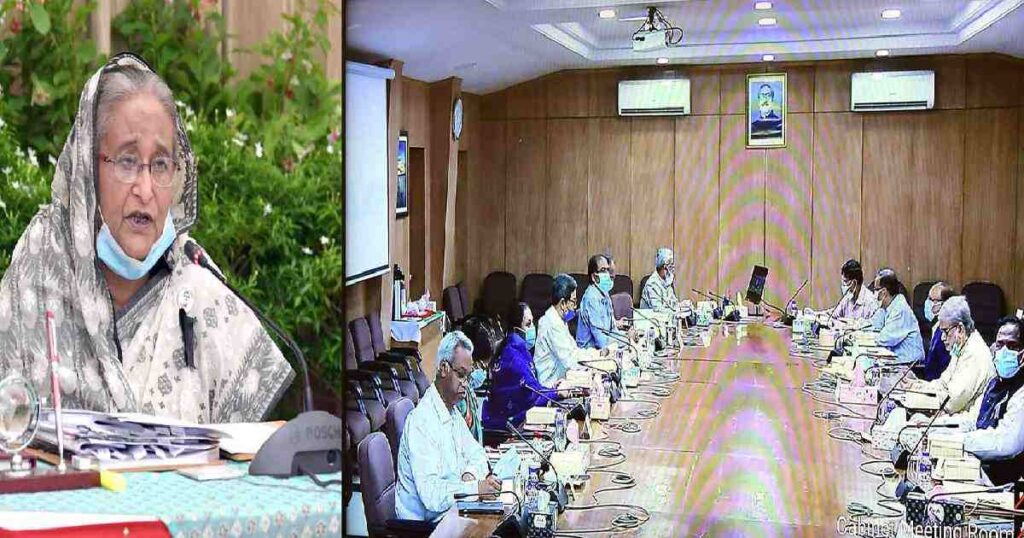The cabinet has decided not to formulate new laws scrapping the old ones either enacted or promulgated from January 1, 1972 to August 5, 1975, during the rule of Father of the Nation Bangabandhu Sheikh Mujibur Rahman.
The cabinet says those laws and ordinances will only be amended.The decision came from the regular weekly meeting of the cabinet held at the Bangladesh Secretariat with Prime Minister Sheikh Hasina in the chair. She attended the meeting virtually from her official residence Ganobhaban.
Briefing reporters after the meeting, Cabinet Secretary Khandker Anwarul Islam said it is a groundbreaking decision of the cabinet.
Describing the reasons behind the decision, he said according to an observation of the High Court in February 2013 all necessary ordinances that promulgated from August 15, 1975 to 1979 and from 1982-1986 will be changed into laws while the rest be scrapped.
He said if the old laws, enacted from 1972 to August 15, 1975, are scrapped by new laws due to the necessity of time then it would be unable for anyone to fully understand how was the government under the leadership of Bangabandhu after the independence of the country and how was the state management of that time.
If these laws remain effective, then those who will go for research and do their works on political science and state management will be able to clearly understand the then government seeing those.
“They’ll be able to understand how the state infrastructure was developed and how the state and administration were conducted,” the cabinet secretary said adding, “So, those laws will be amended, if necessary, not be scrapped or replaced.”
The cabinet gave the final approval to the House Building Finance Corporation Order (Amendment) 2020 to increase the authorised capital and paid-up capital, and expand its area of providing services.
The original law was promulgated in 1973, during Bangabandhu’s rule, through an order.
With the amendment, the authorised capital of the House Building Finance Corporation will be Tk 1,000 crore while the paid-up capital Tk 500 crore. “With the enhancement of these, the Corporation will be able to provide more services,” the cabinet secretary said.
With the amendment, he said, the duration of the maximum punishment has been increased to five years or Tk 5 lakh as fine or both.
The cabinet also gave approval in principle to the Bankers’ Book Evidence Bill 2020 to replace the old Bankers’ Book Evidence Act 1891.
He said this law will be a new one as the ground reality has changed a lot given the reality of 1891. In this connection, he mentioned about the banking through digital and ICT-based banking system. The new law will incorporate these new aspects in it.
The cabinet secretary mentioned that the new law defines the jurisdiction of the court for any bank related information, which are totally prohibited in the old law.
“Some of the information have been opened up in the new law, axing the privileged and personal information, who will be authorised to publish the information has been defined in the new law” he said.
The new law also states some offences, punishments and trial to prevent unauthorised and the behind-scene leak of any information.
He said this law has been sent to the legislative division for vetting and it will be placed before the cabinet again for final approval.
The cabinet also approved the draft of ‘National food and nutrition policy 2020’, considering the food system as a whole.
source: UNB




